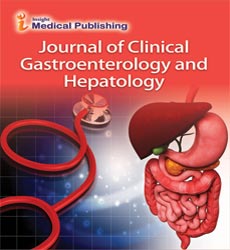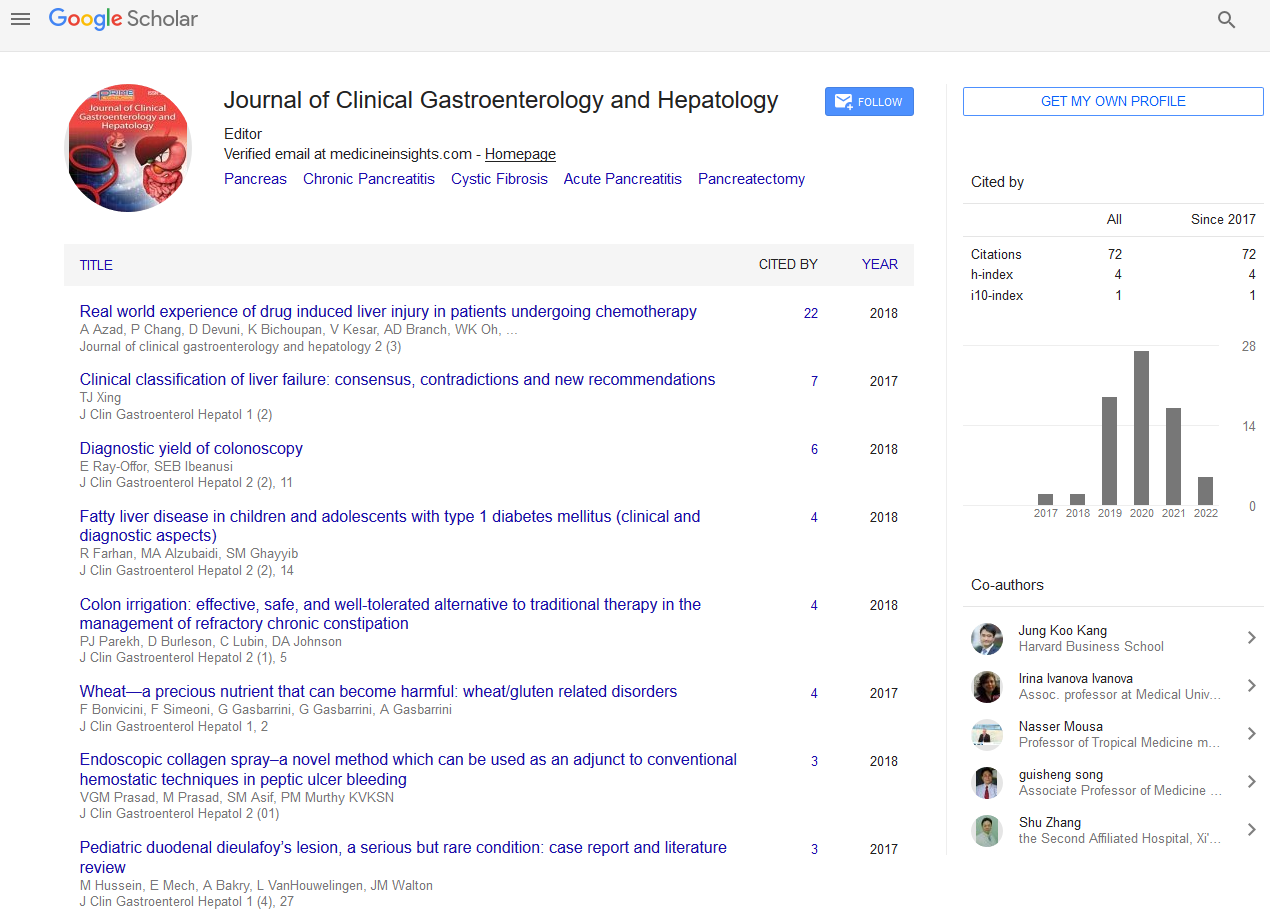Kristen Beck*
Department of Gastroenterology, University of Gastronomic Sciences, Piedmont, Italy
- *Corresponding Author:
- Kristen Beck
Department of Gastroenterology
University of Gastronomic Sciences
Piedmont, Italy
E-mail: Kristenbeck@pd.it
Received Date: October 04, 2021; Accepted Date: October 18, 2021; Published Date: October 25, 2021
Citation: Beck K (2021) Digestion and Digestive Disorders of Gastrointestinal Tract. J Clin Gastroenterol Hepatol. Vol.5 No.2:3.
About the Study
Digestion is the most important metabolism in the human
body as many of the nutrients get absorbed after the digestion
process of the ingested food. Digestion process starts in the
mouth. The food passes through GI tract and enters the small
intestine for complete digestion. There are different digestive
disorders ranging from mild to severe which include Indigestion,
Gastro Esophageal Reflux Disease (GERD), irritable bowel
syndrome, lactose intolerance, hiatal hernia, gastroenteritis and
ulcers.
Indigestion occurs when the acid in the stomach (HCl) irritates
the lining of the stomach leading to improper digestion of the
food. The symptoms include pain in the abdomen, feeling full
after intake of food, heart burn. Bloating of the stomach is
another digestive disorder where excess gas is produced in the
stomach and causes discomfort. Vomiting is the forceful
expulsion of the stomach contents, this can be due to improper
digestion of stomach contents and can also be caused by
underlying serious medical conditions.
Irritable Bowel Syndrome is a common digestive disorder. IBS
is characterized by abdominal pain, Fever, Cramping, Bloating.
IBS is caused either by going more or less often than normal
bowel movements. Diarrhea is characterized by a loose, watery
stools or need to have a bowel movement frequently causing
excess loss of fluids from the body. Constipation is the irregular
movement of the bowel leading to bulk accumulation of the
stool in the colon causing abdominal discomfort and cramps.
Lactose intolerance is the inability to digest the natural sugar
lactose which is present in the dairy products. Consuming of lactose containing foods can cause abdominal pain, Bloating,
Diarrhea. Gastro Esophageal Reflux Disease (GERD) is
characterized by the reflux of the stomach acids into the tube
connecting mouth and stomach-Lower Esophageal Sphincter
(LES) causing heart burn or acid indigestion. Hiatal Hernia is
known when the part of the stomach bulges up through
diaphragm into chest cavity. Symptoms include Heart burn,
Abdominal pain, Bloating.
Gastroenteritis is a digestive disorder that is caused either by virus or bacteria in the gut. Viral infections can be caused by
rotavirus and Bacterial infections can be caused either by
Helicobacter pylori or salmonella or E. coli symptoms include
nausea, vomiting, fever, abdominal pain, diarrhea and
electrolytes imbalance. Ulcers are the sores on the lining of the
stomach in the small intestine and sometimes can be seen in
esophagus. Of all the ulcers Peptic ulcers is most commonly
occurring digestive disorder. Generally peptic ulcers were caused
either due to diet or by the bacteria in the stomach. Many
reseaches revealed that excess usage of Non-Steroidal Anti
Inflammatory Drugs (NSAIDS) such as ibuprofin causes peptic
ulcers. Consuming of spicy foods and Alcohol may cause peptic
ulcers.
In this article it can be concluded that the most common
symptoms of digestive disorders include Bloating, Diarrhea,
Constipation, Heart Burn, Nausea, Vomiting and abdominal pain.
Diagnosing Digestive disorders involves collecting of medical
history and conducting physical examination. In some cases
digestive disorders may need more diagnostic evaluations which
include endoscopic procedures, Imaging and lab tests.

